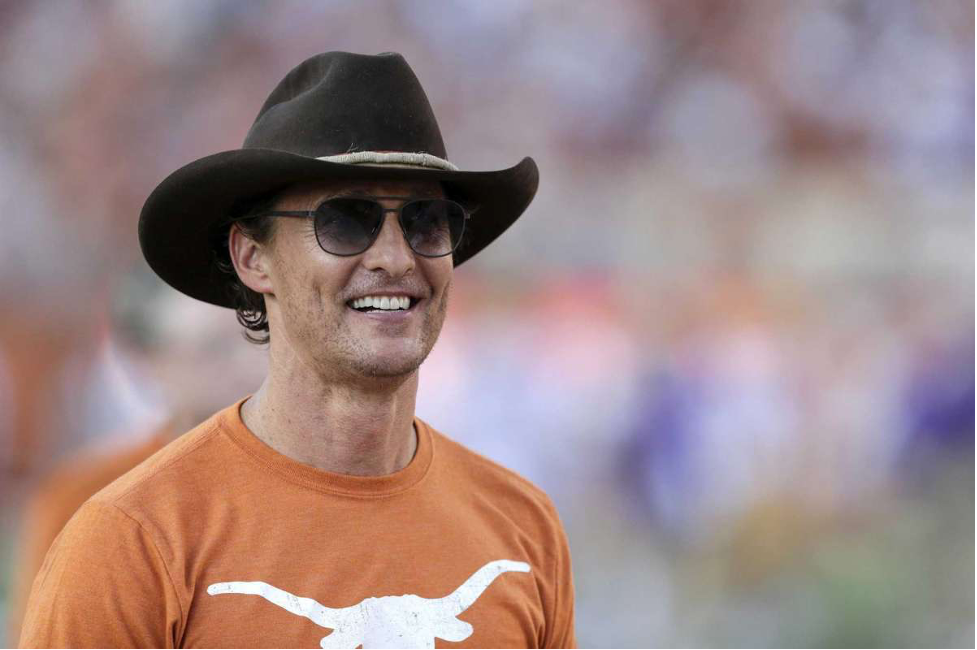
Alright, alright, alright, let’s talk Texas! The large Lone Star State is often a space for political fodder and speculation that mirrors national conversations, who runs for office is no exception. In April of this year, a poll released by the Dallas Morning News showed that, in a head-to-head matchup, Oscar winner Matthew McConaughey would beat Governor Greg Abbott in the Texas Gubernatorial race 45 percent to 33 percent. The actor toyed with the idea of running for months, stringing Texas and the Democratic party, with Beto O’Rourke waiting in the wings along. McConaughey has long considered stepping into politics, and It seemed he was enjoying the attention, too, even taking on the position of ‘Minister of Culture’ for the University of Texas Austin.
The public seemed excited by the prospect of a McConaughey governorship, given his polling numbers, despite Texas being a deeply red state where Governor Greg Abbott already maintains a strong coalition. Americans are constantly searching for something different from their politicians. While the idea of an “anti-establishment” politician has long been in vogue, what does it mean when famous personalities are periodically met so favorably?
People in the public eye have recognized a space they can fill in politics. New York Times celebrity columnist Nicolas Kristoff, a writer with a highly loyal following, recently resigned from the newspaper to run for Governor of Oregon. Actress Cynthia Nixon ran an unsuccessful campaign for Governor of New York in 2018. It could just be a case of arrogance driving these personalities to run, but the phenomenon feels more complex than that. More than the mystique of celebrity, there is a hunger for humanity in American politics, and Americans connect with famous creators above all else. They want to see familiar faces representing them rather than the hardened political faces they’ve come to know, or at least they think they do.
It’s marvelous just how quickly McConaughey lost his sheen with one misstep. When asked in an interview, just a month before the deadline to file for candidacy, what his thoughts were on a vaccine mandate for children, the actor rejected a full endorsement, saying “we go slow on vaccinations, even before Covid” and that he wanted more information before he made a decision. That was all it took to start a firestorm, with many articles and tweets insinuating that McConaughey was anti-vaccine. Suddenly McConaughey was held to the same level of scrutiny as a politician, it seems likely that this incident played a large part in his decision not to run.
As is well established, public opinion shifts rapidly through means of social media, to chastise those with influence. A comment like McConaughey’s mandate stance would have never come to light if he weren’t being treated as a political hopeful. Gone were the questions about his next movie, replaced with more pointed policy questions.
As soon as one endeavors to serve the public, they should expect public scrutiny, just as the public should expect their favorite celebrities to make the same stumbles as politicians. However, the fact that McConaughey garnered as much support as he did demonstrated the public’s tangible hunger to know those in power, to feel that they are in touch with their leaders in a way we rarely ever do with career-legislators.
I push back on the idea that Americans are infatuated by celebrity candidates because Americans are an ignorant people consumed by celebrity culture, rather they are tired of a severe, ruthless political culture of criticism that they have a hand in perpetuating through social media commentary.
American politics are rarely a welcoming place for multi-hyphenates, our political atmosphere rejects views that don’t double as soundbites. Would McConaughey have been an effective governor? Who knows, but McConaughey himself put it well, “I don’t know if you can walk down the center and not be in trouble.”
